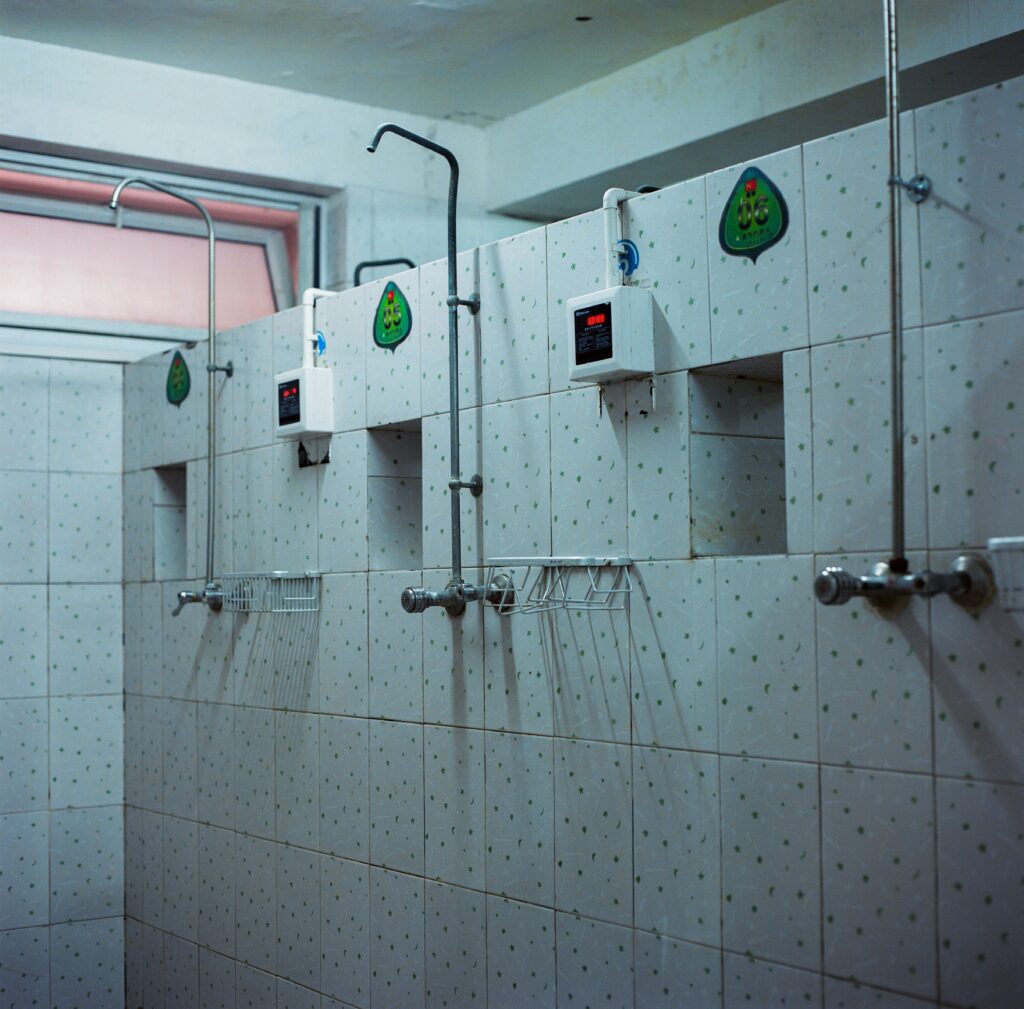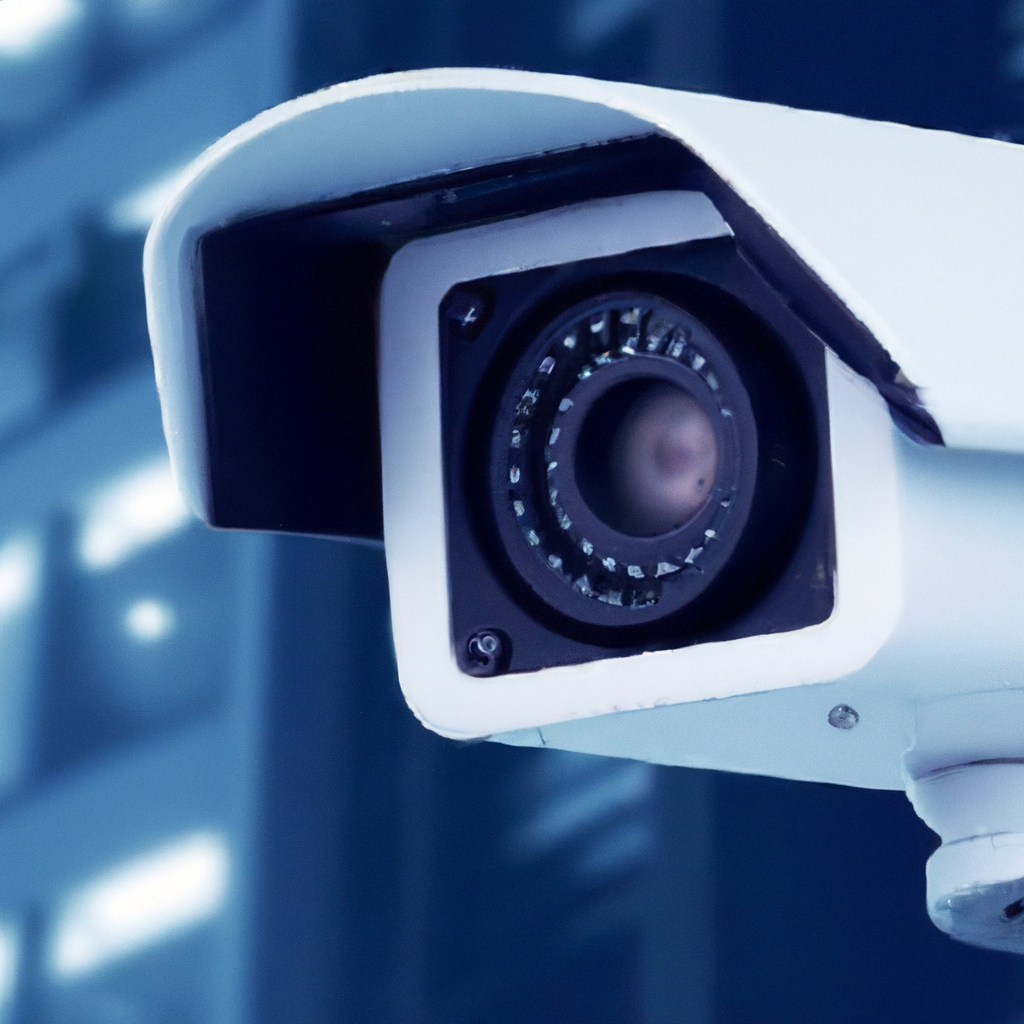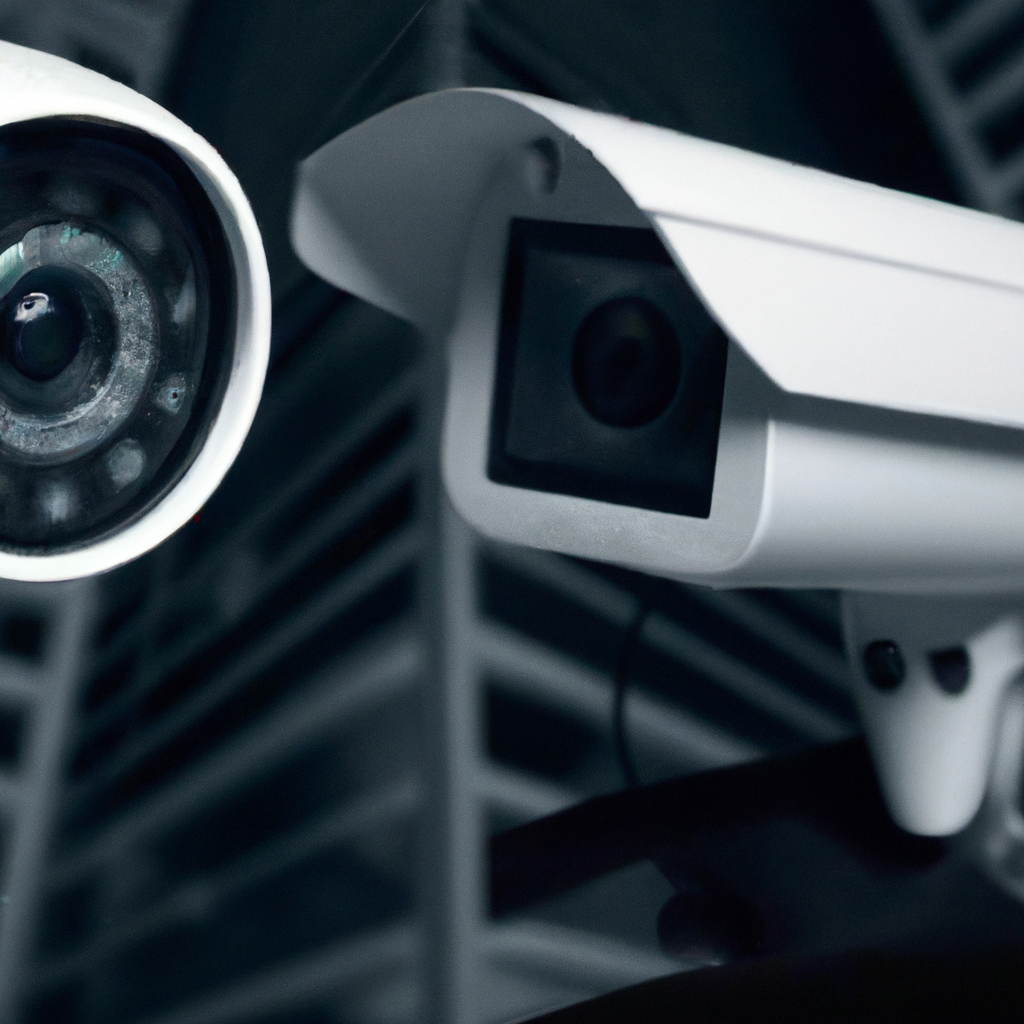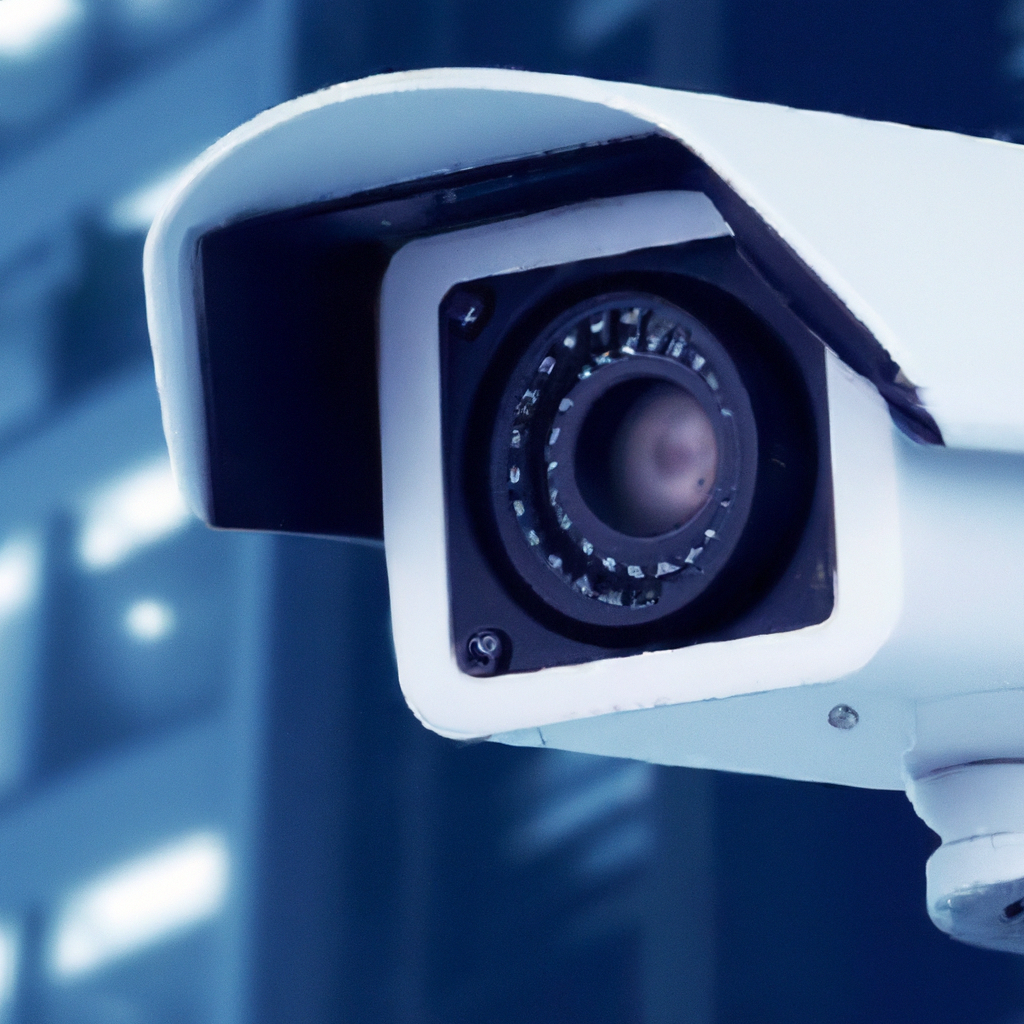Imagine having a state-of-the-art smart camera set up in your living room, seamlessly integrating into your daily life. Its features are incredible, allowing you to effortlessly keep an eye on your home from anywhere in the world. However, amidst the convenience and innovation lie a series of privacy concerns that must be addressed. In this article, we will explore the potential risks and vulnerabilities that come with having smart cameras in your living room, shedding light on the importance of safeguarding your personal privacy in a technologically advanced world.

Introduction to Smart Cameras in the Living Room
Smart cameras, also known as home security cameras, have gained popularity in households as a means to ensure the safety and surveillance of the living space. These cameras are equipped with advanced technology, such as facial recognition and real-time monitoring, allowing homeowners to monitor their property remotely. While smart cameras offer convenience and peace of mind, there are significant privacy concerns that arise from their use in the living room.
Definition of Smart Cameras
Smart cameras are devices that are designed to capture real-time video footage and audio within a specified area, typically the living room in the case of home security cameras. These cameras are often connected to other smart devices, such as smartphones or home assistants, allowing users to remotely access and monitor the footage. They are equipped with motion sensors, night vision, and built-in microphones, providing homeowners with an all-encompassing view of their living space.

Role of Smart Cameras in the Living Room
Smart cameras play a crucial role in enhancing home security and protecting personal belongings. They act as a deterrent to potential intruders and can provide valuable evidence in the event of a break-in or other security incidents. Additionally, these cameras allow homeowners to check on their property remotely, ensuring the safety of family members and pets. With the help of smart cameras, users can monitor their living room and react promptly to any unexpected activity.
Privacy Risks
Despite the benefits they offer, smart cameras in the living room raise significant privacy concerns. These concerns can be categorized into various areas of risk, including unauthorized access, data breaches, and surveillance concerns.
Unauthorized Access
One of the primary privacy risks associated with smart cameras is unauthorized access. Hackers or malicious individuals may attempt to gain access to the camera’s feed and video footage, potentially compromising the privacy and security of the homeowners. This unauthorized access can lead to live streaming of private moments or even surveillance by malicious actors.
Data Breaches
Smart cameras collect a vast amount of personal data, including video footage, audio recordings, and user information. This data is vulnerable to data breaches, which can occur due to weak security measures, unencrypted data transmission, or the hacking of the cloud storage where the data is stored. Data breaches can expose private information and potentially lead to identity theft or other forms of cybercrime.
Surveillance Concerns
Smart cameras in the living room can raise concerns about constant surveillance and invasion of privacy. Homeowners may feel uncomfortable knowing that their every move and conversation in the living room is being recorded and monitored. This constant surveillance can lead to a sense of unease and may deter individuals from fully expressing themselves or engaging in private activities within their own homes.

Data Collection and Storage
Smart cameras collect and store various types of data, posing additional privacy risks. Understanding the extent of data collection and the potential implications is crucial in assessing the privacy concerns associated with smart cameras in the living room.
Continuous Monitoring
Smart cameras are designed to provide continuous monitoring of the living room area, capturing video footage and audio throughout the day. While this feature may be useful for security purposes, it raises concerns about personal privacy. Homeowners may feel uneasy about being constantly under surveillance, even within the four walls of their own home.
Facial and Object Recognition
Many smart cameras are equipped with advanced facial and object recognition technology. These features allow the camera to distinguish between different individuals and objects within the living room. While facial recognition can enhance security by alerting homeowners of unfamiliar faces, it also raises concerns about privacy invasion and the potential for misidentification.
Audio Recording and Conversations
In addition to video footage, smart cameras may also record audio within the living room. This raises significant privacy concerns as conversations and private discussions can be captured and potentially misused. Homeowners may be unknowingly recorded and find their private conversations in the hands of unauthorized individuals.
Third-Party Access
Smart cameras often involve the sharing of data with various third parties, including manufacturers, hackers, and even law enforcement. This sharing of data can lead to privacy breaches and potential misuse of personal information.
Data Sharing with Manufacturers
Manufacturers of smart cameras may collect and share personal data from their users for various purposes, including product improvement and targeted advertising. This data sharing raises concerns about the security and confidentiality of the user’s information. Users may feel uneasy knowing that their personal data could be accessed and potentially used by the manufacturer or other affiliated companies.
Vulnerability to Hackers
Smart cameras are susceptible to hacking attempts, exposing the homeowner’s private data and footage to unauthorized individuals. Hackers can gain access to the camera’s feed, potentially leading to the live streaming of intimate moments or the surveillance of personal activities. This vulnerability to hackers poses a significant privacy risk to homeowners.
Sharing with Law Enforcement
Law enforcement agencies may seek access to smart camera footage for investigative purposes. While this can be beneficial in certain situations, it raises concerns about privacy invasion and the potential misuse of personal data. Homeowners may feel uncomfortable with the idea of their living room activities being monitored by law enforcement without their knowledge or consent.

Lack of Security Measures
Smart cameras often lack sufficient security measures, leaving them vulnerable to privacy breaches and unauthorized access. Understanding the weaknesses in security is crucial in addressing the privacy risks associated with these devices.
Insufficient Encryption
Encryption is a crucial security measure for protecting the privacy of data. However, many smart cameras lack strong encryption protocols, leaving the data vulnerable to interception and unauthorized access. Insufficient encryption increases the risk of personal data being compromised and misused.
Weak Authentication
Weak authentication methods can make smart cameras susceptible to unauthorized access. If the camera’s login credentials are easily guessable or if default passwords are not changed, hackers can gain access to the camera’s feed and potentially the homeowner’s personal information. Weak authentication practices undermine the security and privacy of the smart camera system.
Inadequate Firmware Updates
Firmware updates are essential for patching security vulnerabilities and ensuring the overall security of smart cameras. However, many manufacturers fail to release regular firmware updates or provide inadequate support for older camera models. This lack of updates leaves the devices exposed to known security flaws, compromising the privacy and security of the users.
Ethical Considerations
Apart from the privacy risks, smart cameras in the living room raise ethical concerns regarding the invasion of privacy, user consent, and potential discriminatory practices.
Invasion of Privacy
The constant monitoring and recording of individuals within their own living rooms can be seen as a violation of personal privacy. Homeowners may find it intrusive to have their every move and conversation recorded, potentially leading to a sense of discomfort and unease.
Consent and User Awareness
There is a growing concern over whether users are fully aware of the extent of data collection and who has access to their personal information. Clear consent and user awareness are essential to ensure that individuals understand the privacy risks associated with smart cameras in the living room and can make informed decisions about their use.
Discriminatory Practices
Facial recognition technology used in smart cameras can be prone to discriminatory practices. If the camera’s algorithm is biased or improperly calibrated, it may misidentify individuals based on personal characteristics such as race or gender. This raises concerns about potential discrimination and the infringement of individuals’ rights within their own homes.

Potential Misuse
The extensive capabilities of smart cameras in the living room can open avenues for potential misuse of the captured data, leading to significant privacy risks.
Blackmail and Extortion
If hackers gain access to the smart camera’s feed and capture compromising or sensitive information, they may attempt to blackmail or extort the homeowner. This can have severe psychological and financial consequences for the victim, highlighting the potential dangers of unauthorized access to personal data.
Stalking and Harassment
Smart cameras can inadvertently enable stalking and harassment if they fall into the wrong hands. If a malicious individual gains access to the camera’s feed, they can monitor the homeowner’s activities, potentially leading to stalking or harassment incidents. This misuse highlights the need for enhanced security measures to protect both privacy and personal safety.
Identity Theft
The data collected by smart cameras, such as video footage and audio recordings, can be a goldmine for identity thieves. If these data are breached or stolen, individuals may become vulnerable to identity theft and other forms of cybercrime. Protecting the privacy and security of this data is crucial in preventing such risks.
Legal Issues
The use of smart cameras in the living room raises various legal issues, including the lack of clear regulations, jurisdictional challenges, and questions of liability and accountability.
Lack of Clear Regulations
The rapid advancements in smart camera technology have outpaced the development of comprehensive regulations. This lack of clear regulations results in uncertainties regarding the use, storage, and sharing of data collected by these devices. Establishing robust legal frameworks is essential to protect individuals’ privacy rights and ensure responsible use of smart cameras.
Jurisdiction and Law Enforcement
The use of smart cameras raises questions about jurisdiction and the involvement of law enforcement agencies. The jurisdictional challenges can complicate the enforcement of privacy rights and the investigation of potential privacy breaches. Clear guidelines need to be established to define the boundaries of law enforcement access and protect individuals’ privacy interests.
Liability and Accountability
Determining liability and accountability for privacy breaches involving smart cameras can be complex. In cases of data breaches or unauthorized access, it may be challenging to identify the responsible party, leading to difficulties in seeking legal recourse. Clear guidelines and frameworks are necessary to establish accountability and ensure that privacy breaches are appropriately addressed.
Mitigation Strategies
While privacy risks associated with smart cameras in the living room are concerning, there are several mitigation strategies that can help alleviate these concerns and protect individuals’ privacy.
Usage Control and Consent Settings
Smart cameras should provide comprehensive control and consent settings that allow users to customize the extent of monitoring and data collection. Giving individuals the ability to adjust settings according to their privacy preferences empowers them to protect their privacy while using the device for security purposes.
Secure Data Storage and Encryption
Manufacturers should prioritize robust data storage and encryption protocols to ensure the secure handling of personal information. Strong encryption should be implemented both during data transmission and storage, minimizing the risk of data breaches and unauthorized access.
Regular Firmware Updates
Manufacturers must commit to releasing regular firmware updates, addressing security vulnerabilities and ensuring the ongoing security of the smart camera system. This commitment to updates will help protect against new threats and strengthen the overall privacy and security of the device.
Recommendations for Consumers and Manufacturers
Both consumers and manufacturers have a role to play in addressing the privacy concerns associated with smart cameras in the living room. Implementing the following recommendations can promote responsible use and protection of privacy rights.
Educating Consumers on Privacy Risks
Manufacturers should provide comprehensible information to consumers about the privacy risks associated with smart cameras. This information should be easily accessible and clearly communicate the potential implications of using the devices. Educating consumers will enable them to make informed decisions and take necessary precautions to protect their privacy.
Transparent Privacy Policies
Manufacturers should develop and adhere to transparent privacy policies, clearly outlining how data is collected, stored, shared, and protected. These policies should be easily accessible and written in a language that is easily understood by the average consumer. Transparent privacy policies promote trust and allow consumers to make informed decisions about using smart cameras.
Security Audits and Certifications
Manufacturers should conduct regular security audits of their smart camera systems and seek certifications from trusted third-party entities. These audits and certifications demonstrate a commitment to privacy and security and offer consumers reassurance that the manufacturer has taken steps to protect their personal information.
In conclusion, while smart cameras in the living room offer convenience and enhanced security, they also raise significant privacy concerns. Unauthorized access, data breaches, surveillance concerns, and potential misuse are privacy risks associated with these devices. Lack of security measures, ethical considerations, legal issues, and potential misuse only amplify these risks. However, through the implementation of mitigation strategies and recommendations for consumers and manufacturers, steps can be taken to address the privacy concerns associated with smart cameras in the living room and protect individuals’ privacy.
